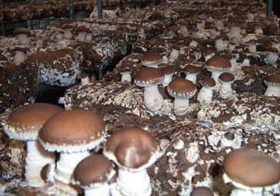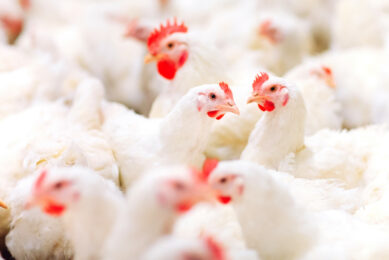Spent mushroom substrate as animal feed additive

Total Nutraceutical Solutions plans to develop and market spent mushroom substrate as an animal feed additive with nutritional value via collaborative research with the Department of Food Science at Pennsylvania State University.
To obtain the substrate TNS has signed an agreement with Hokto Kinoko Co. to acquire mushroom spent substrate from the Hokto facility in San Marcos, California.
The 23,000 square metres growing facility for fresh specialty mushrooms has the potential at full capacity to produce 20-25 tonnes of spent substrate per day.
Marvin S. Hausman MD, CEO of TNS explains what their aim will be: "Research collaborations between our own scientists and those of the Department of Food Science, Pennsylvania State University, will allow us to identify key bioactive substances within the spent substrate which has the potential to supplement the diets of humans and animals.
Anti-oxidants and anti-inflammatory agents
“These bioactive nutrients and enzymes may act as natural potent anti-oxidants and anti-inflammatory agents to increase the nutritional value of animal food products. The nutrients may also prevent various diseases that afflict animals in the food chain as well as many humans."
Mushroom substrate waste is defined as the spent substrate (growing media) and all mushroom residuals resulting from cleaning the growing bottles after the harvest of mushroom fruit bodies at the growing facility.
The Hokto state-of-the-art facility, the largest of its kind in the United States, produces mushroom s such as: Brown Beech (Buna Shimeji), White Beech, King Trumpet (Pleurotus eryngii), and Maitake.
Total Nutraceutical Solutions, Inc. based in Spartanburg, South Carolina, is an emerging nutraceutical company with a focus on discovering, formulating and marketing products composed primarily of organic natural mushroom compounds that contain bioactive nutrients for potential health benefits.
TNS develops production and analytic technologies for food and nutritional supplements composed primarily of mushrooms and their mycelial biomasses.
TNS also develops and acquires breakthrough nutritional tools and products in the fields of animal husbandry and livestock feeds.











